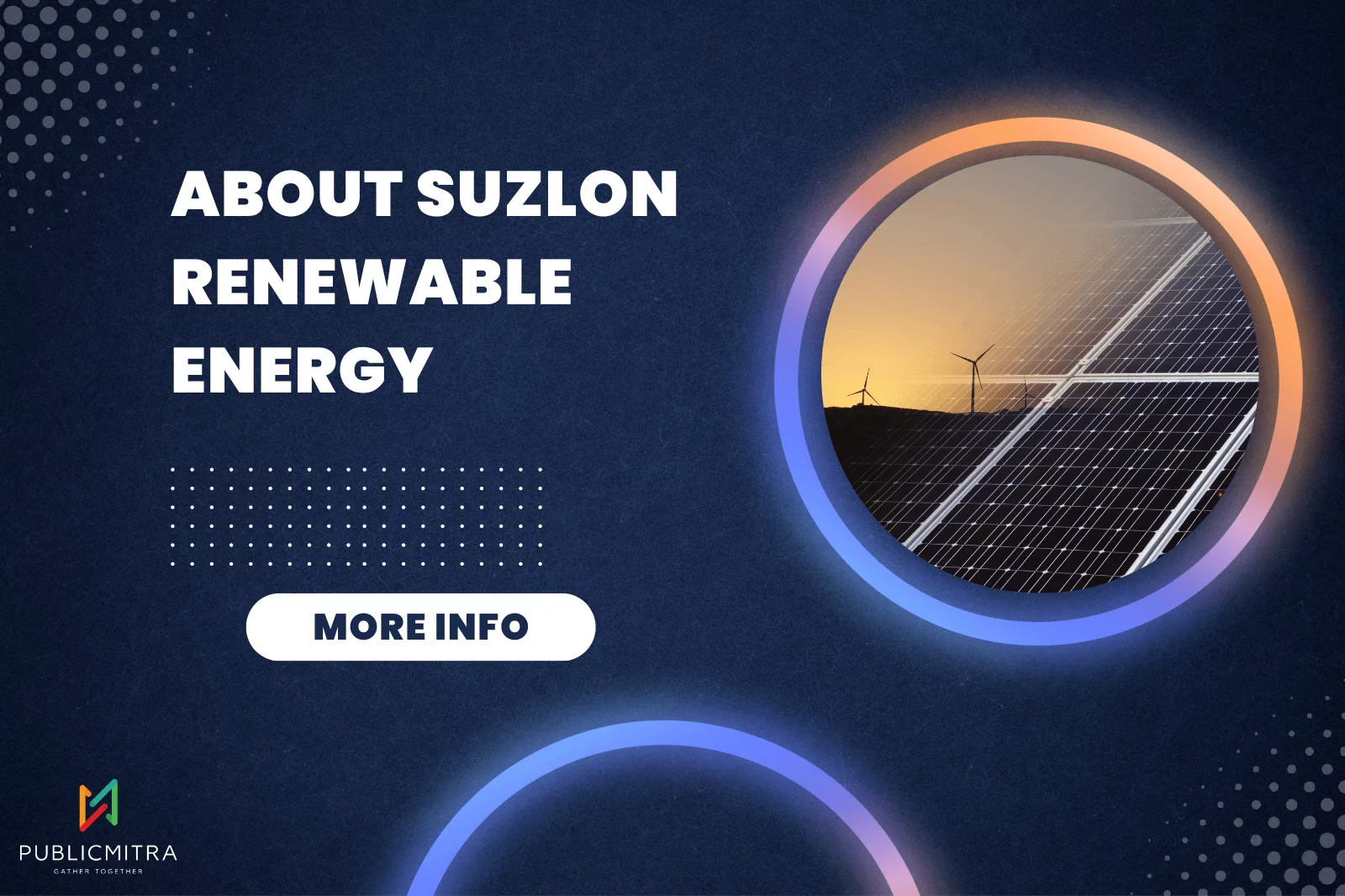About Suzlon Renewable Energy
The Indian multinational wind turbine has emerged as a pioneering force in the dynamic landscape of renewable energy. The organization has been instrumental in transforming the global paradigm with its commitment to sustainability and innovative solutions. The headquarters being located in Pune, India the organization was ranked as the fifth largest water turbine supplier in the world.
Led by its forward-thinking CEO Tulsi Tanti and strengthened by a rich history of accomplishments, Suzlon stands as a testament to its potential. His leadership has been essential in directing Suzlon’s strategic choices, driving growth, and advancing sustainable practices. The CEO’s strategy includes not just material gains but also a sincere dedication to reducing global warming through the use of renewable energy sources.
History and Evolution
Tulsi Tanti established Suzlon Renewable Energy in 1995 from a textile business with 20 employees that was struggling with escalating electricity expenses. With a distinctive client-funded approach and subsequent bank support, Suzlon was born as a result of Tanti’s move into the wind energy industry.
Important landmarks include entering the US market in 2003 and beginning US blade production in 2006. Suzlon’s expansion plan is demonstrated through its acquisitions, which include Hansen Transmissions and Senvion.
Suzlon’s accomplishments include profitability during the 2009 financial crisis and a 10,000 MW wind energy milestone in 2017. This is despite financial difficulties and debt restructuring. Due to the company’s heavy debt load, assets like Senvion SE had to be sold. Suzlon’s journey demonstrates its dedication to eco-friendly energy solutions as well as its global footprint, which includes manufacturing plants and diversified staff.
At present, Suzlon has 15 manufacturing facilities along with a workforce of 8000 employees all over the world.
One Earth’s Green Symphony of Innovation
Architectural Marvel and Green Essence
The center of the campus designed as a garden with cascading water streams enhanced the appearance as well as improved the air quality, aiding in evaporative cooling. Deepastambha, the obelisk that served as the focal point of the central court, was illuminated strikingly.
The unusual glass chimneys that drew air from the cellars added to the architecture’s beauty. The Deepastambha, waterfall, glass chimneys, and corporate atrium formed a unified alignment and became the campus’s focus features.
Innovative Zero Energy Initiatives
The campus’s dedication to sustainability was evident in all of its endeavors. Systems for LED outdoor lighting cut energy use by 65%. Suzlon One Earth became a Zero Energy Project with 92% of its energy coming from renewable sources thanks to the 8% of yearly energy requirements that were met by photovoltaic and wind power generation.
This outstanding accomplishment resulted in the campus receiving the coveted Teri Griha 5 Star and Leed Platinum certifications, demonstrating Suzlon’s commitment to green innovation.
Water Management
The conservation of water stands as a top priority in the architectural plan, which uses greywater and rainwater to reduce water usage by more than 50%. Suzlon’s comprehensive strategy for sustainable water management was made clear by recycling greywater for irrigation and HVAC systems as well as for use in sewage treatment and rainwater collection systems.
Championing Energy Efficiency
On-campus hybrid wind turbines, solar panels, and photovoltaic cells made up the remaining 7% of energy, with off-site wind turbines providing 93% of the campus’s electricity. The campus achieved significant energy savings by utilizing sunshine wisely and installing creative cooling technologies. Innovative approaches, such as indirect evaporative cooling, reduced the need for air conditioning.
The use of CFC-free refrigerants for HVAC systems further demonstrated Suzlon’s commitment to the environment and people’s well-being.
Zero Waste and Indoor Quality
The One Earth Campus’s Zero Waste policy emphasized effective waste management at its source, encouraging resource awareness and a more environmentally friendly working environment. This strategy emphasized the individual’s responsibility for waste management and promoted appropriate resource consumption.
The Bottom Line
The Suzlon One Earth Campus is a prime example of architectural genius combined with sustainability principles; from the alluring garden-inspired design to cutting-edge energy and water management solutions, the campus embodies Suzlon’s commitment to a greener future. This ground-breaking project not only raises the bar for architectural innovation but also paves the way for a harmonious coexistence of people and their environment.












